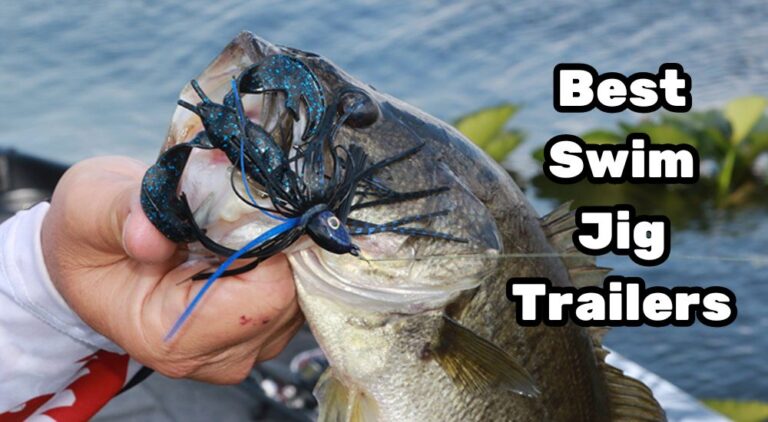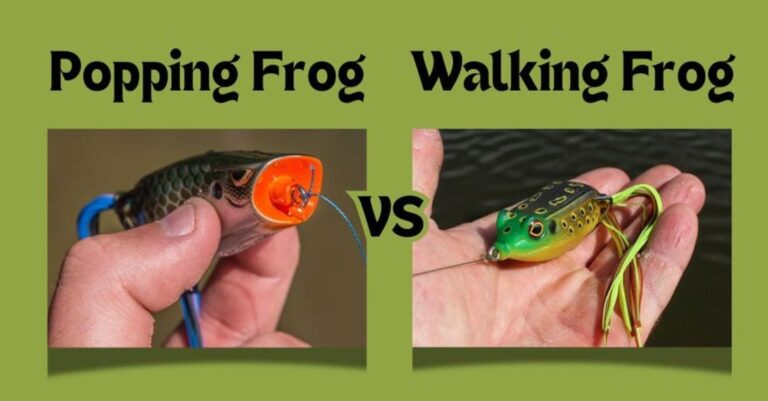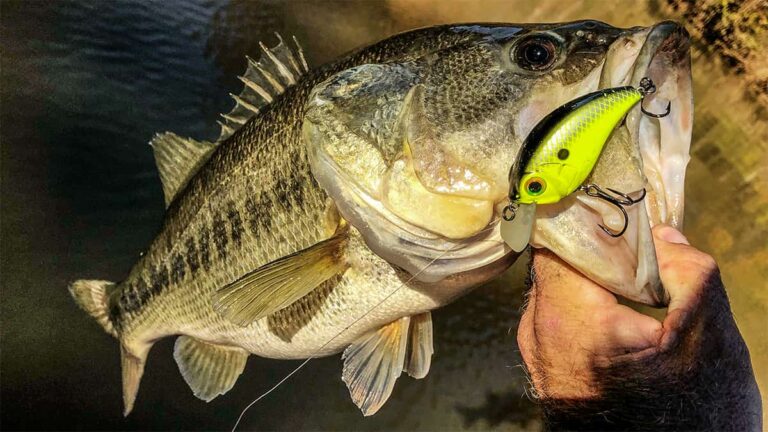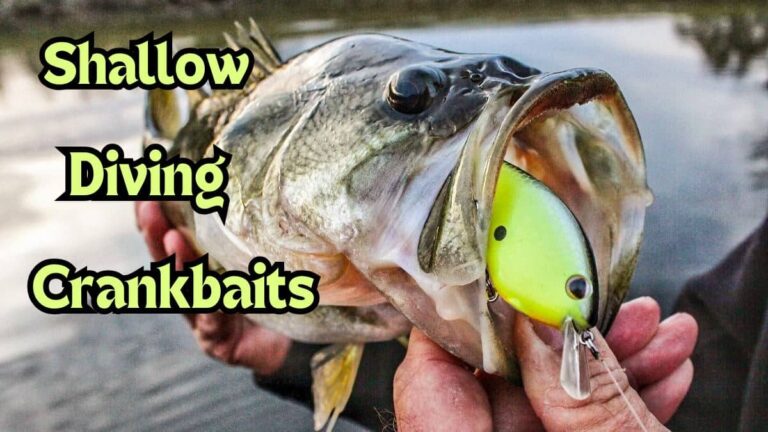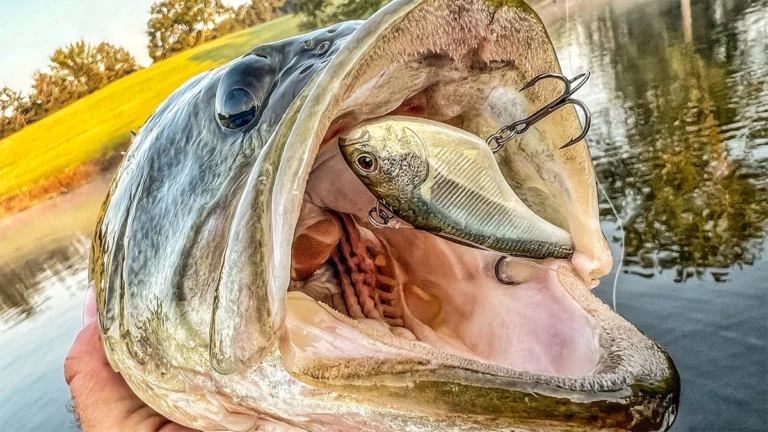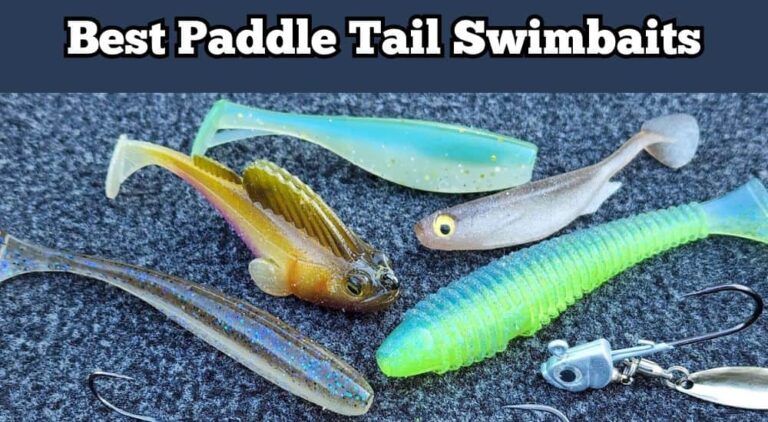5 Best Bass Lures for the Bluegill Spawn
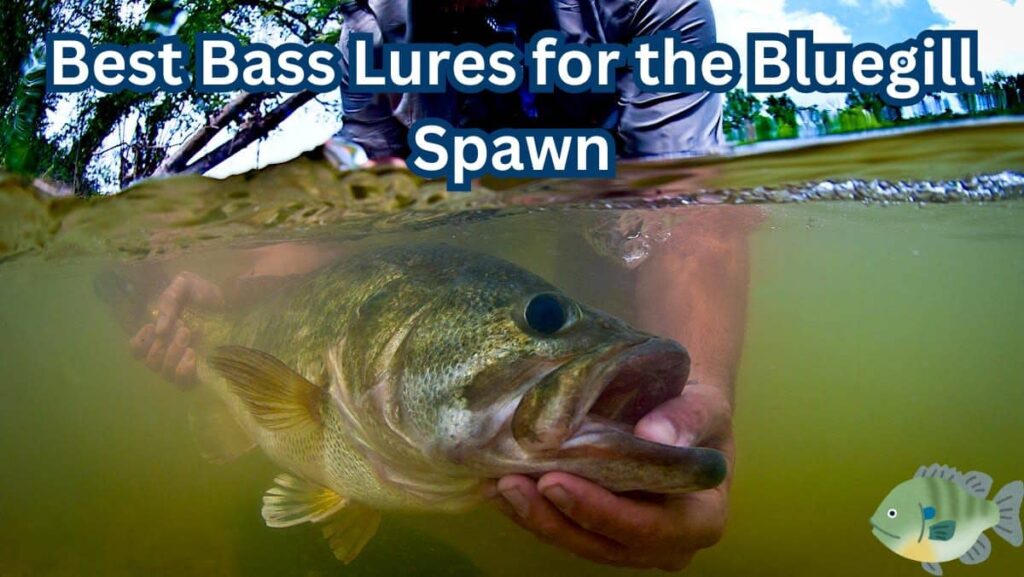
The bluegill spawn can be an awesome time to catch aggressive bass.
These bass are heavily feeding up in the warm water and are easy to find, because they are feeding on the vulnerable bluegill up shallow.
But what are the best bass lures for fishing the bluegill spawn?
Best Bass Lures for the Bluegill Spawn
1. Prop Bait
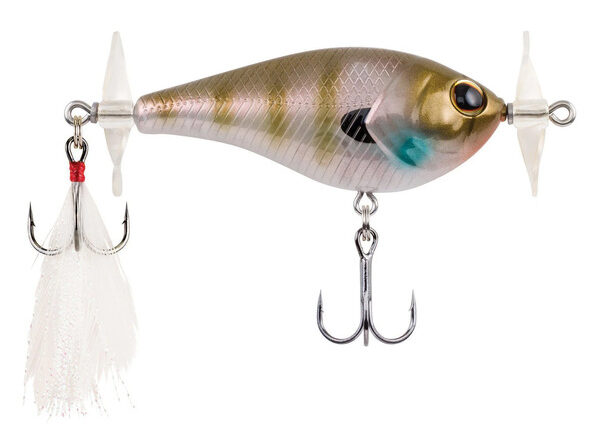
Topwater lures are the center piece of bass fishing the bluegill spawn.
When bluegill are up on the surface, they are incredibly easy targets.
They have no where to swim away because they are already pinned against the surface. Prop baits have a unique sound and bubble trail in the water.
Honestly, I don’t exactly know why bass love prop baits when they are keyed in on spawning bluegill, but for whatever reason, they just do.
Prop baits are also very versatile in that you can fish them fast or slow.
If the bluegill beds are very spread out or the water is too muddy to spot them, you can cover more water and find the hunting bass.
But if there are lots of visible bluegill beds in a honey comb style, you can slow down the prop bait and really pick apart the beds.
Prop baits should be at the top of your list when preparing for the bluegill spawn.
2. Bluegill Swimbait
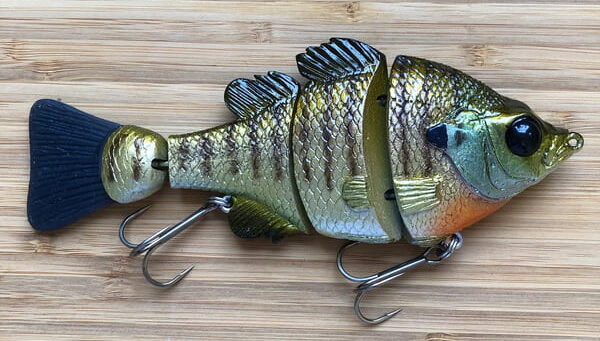
Bluegill swimbaits are my favorite sub-surface lure for bass fishing the bluegill spawn.
I mean, it just makes sense that they work. Bluegill swimbaits are the most realistic and natural bluegill imitations.
Even in darker water where bass don’t get a great look at the bait, the natural swimming action and water displacement of a swimbait mimic exactly what the bass are hunting.
There are both soft plastic and hard body styles of these swimbaits, and honestly it just comes down to your personal preference.
These swimbaits are also a great way to generate bigger bites. The bigger size of these lures imitate the larger sized spawning bluegill.
And the bigger bass really tend to hone in on those bluegill.
3. Popper
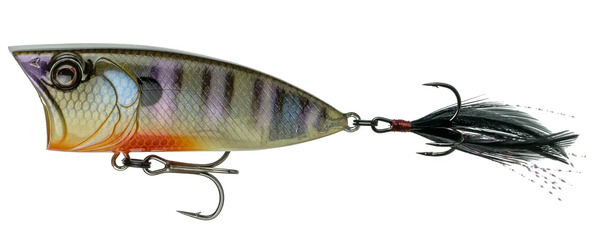
Similar to the prop bait, poppers are a very versatile topwater lure that give hunting bass an easy target.
Just like the prop bait, you can walk a popper to cover more water or slowly pop it to keep it in a specific strike zone longer.
Since I was a kid, the popper has always been my favorite topwater lure.
So personally, it is my favorite topwater bass lure to use in during the bluegill spawn.
The primary scenario where I believe a popper out performs a prop bait is in very clear water.
The spinning metal blades on the front and back of prop baits aren’t the most realistic presentation.
However, poppers have a more natural look, and even a more natural sound.
The popping noise is almost identical to that of real bluegill eating bugs on the surface.
4. Swim Jig
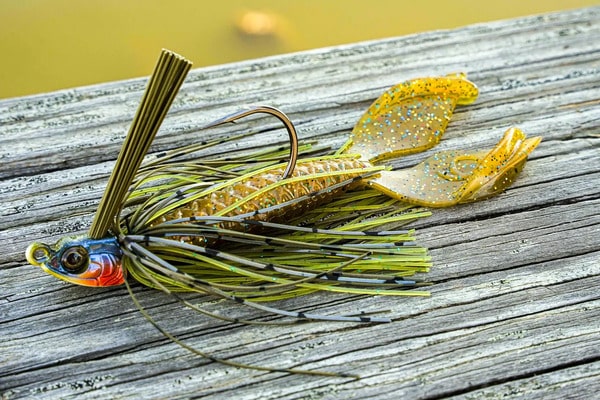
Bluegill spawn in shallow water. This often means that there will be lots of grass, brush, and overhanging cover around their beds.
All three of the above lures have swinging treble hooks that easily snag all types of cover.
Think of the swim jig as a weedless version of a bluegill swimbait in this scenario.
You can cover lots of water sub-surface all while remaining completely weedless.
You also have the freedom to slow down and pick apart stumps, grass patches, docks, or other isolated cover.
I like a bit lighter swim jig than normal so that I can fish in the shallow water without draggin on the bottom or in the weeds. A 1/4 oz is usually perfect.
5. Hollow Body Frog
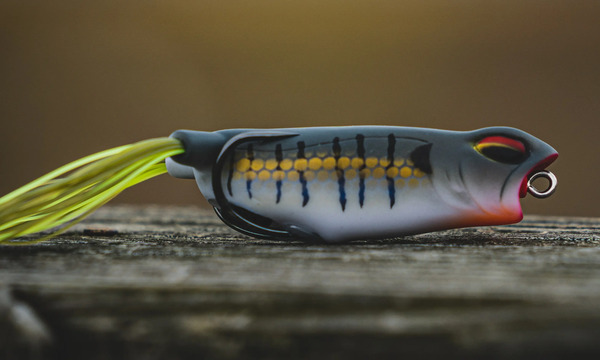
Just like the swim jig acts as a weedless swimbait, the hollow body frog is a weedless topwater.
You can fish a frog in and out of grass, timber, lily pads, and ponds scum that is floating on the surface.
In dirtier water, use a popping frog to slow down the bait and add extra sound.
And in clear water, a standard walking frog will generate plenty of strikes and cover more water.
Although it is called a “frog” this lure primarily imitates bluegill.
And every company makes a bluegill colored frog to dial in the presentation even further.
When is the Bluegill Spawn?
The bluegill spawn is actually a very large time period compared to the bass spawn.
This in part due to the fact that bluegill spawn up to 5 times per year.
Pretty much, bluegill will spawn in water temperatures above 70 degrees.
Which is usually the entire summer time. The good thing is that bluegill beds are very easy to recognize.
How to Identity Bluegill Beds
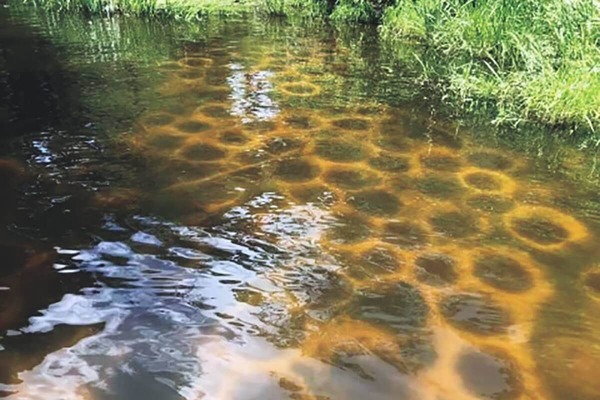
Bluegill beds are characterized by their honey comb appearance.
Sometimes the individual beds are a bit more spread out, but this is their general structure.
Reeling this In
Understanding and utilizing the right lures to accurately imitate bluegill can significantly enhance your success during the bluegill spawn.
Prop baits, with their distinctive sound and versatility, should be at the top of your list, especially for topwater action.
Bluegill swimbaits offer a realistic sub-surface option, perfect for targeting larger bass.
Poppers provide a more natural topwater presentation, ideal for clear waters.
Swim jigs and hollow body frogs offer weedless solutions for navigating through grass and cover, ensuring you can effectively fish in various environments.
By matching your lure selection to the spawning conditions and recognizing bluegill beds’ unique patterns, you’ll be well-equipped to make the most of this prime fishing season.

